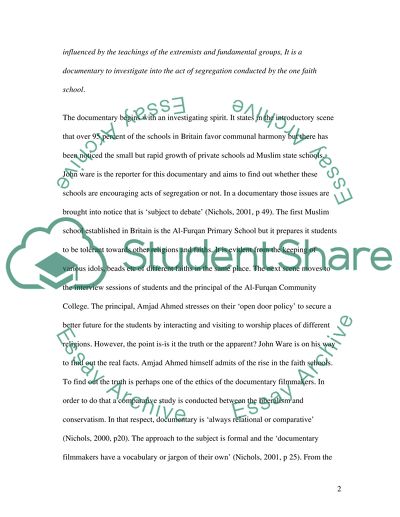Cite this document
(Theory and Practice in a Documentary Essay Example | Topics and Well Written Essays - 1750 words, n.d.)
Theory and Practice in a Documentary Essay Example | Topics and Well Written Essays - 1750 words. https://studentshare.org/visual-arts-film-studies/1574751-the-relationship-between-theory-and-practice-in-a-documentary
Theory and Practice in a Documentary Essay Example | Topics and Well Written Essays - 1750 words. https://studentshare.org/visual-arts-film-studies/1574751-the-relationship-between-theory-and-practice-in-a-documentary
(Theory and Practice in a Documentary Essay Example | Topics and Well Written Essays - 1750 Words)
Theory and Practice in a Documentary Essay Example | Topics and Well Written Essays - 1750 Words. https://studentshare.org/visual-arts-film-studies/1574751-the-relationship-between-theory-and-practice-in-a-documentary.
Theory and Practice in a Documentary Essay Example | Topics and Well Written Essays - 1750 Words. https://studentshare.org/visual-arts-film-studies/1574751-the-relationship-between-theory-and-practice-in-a-documentary.
“Theory and Practice in a Documentary Essay Example | Topics and Well Written Essays - 1750 Words”. https://studentshare.org/visual-arts-film-studies/1574751-the-relationship-between-theory-and-practice-in-a-documentary.


